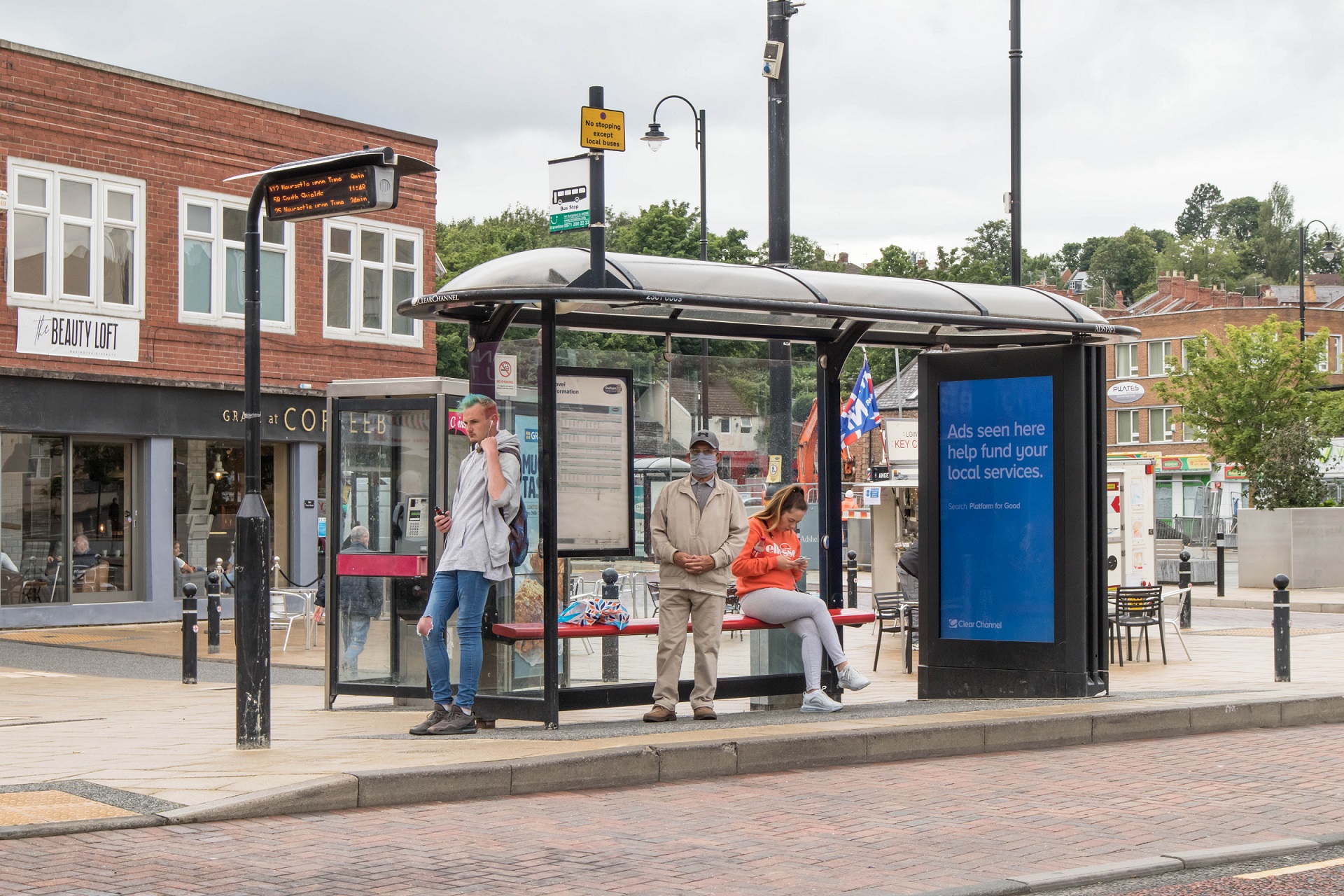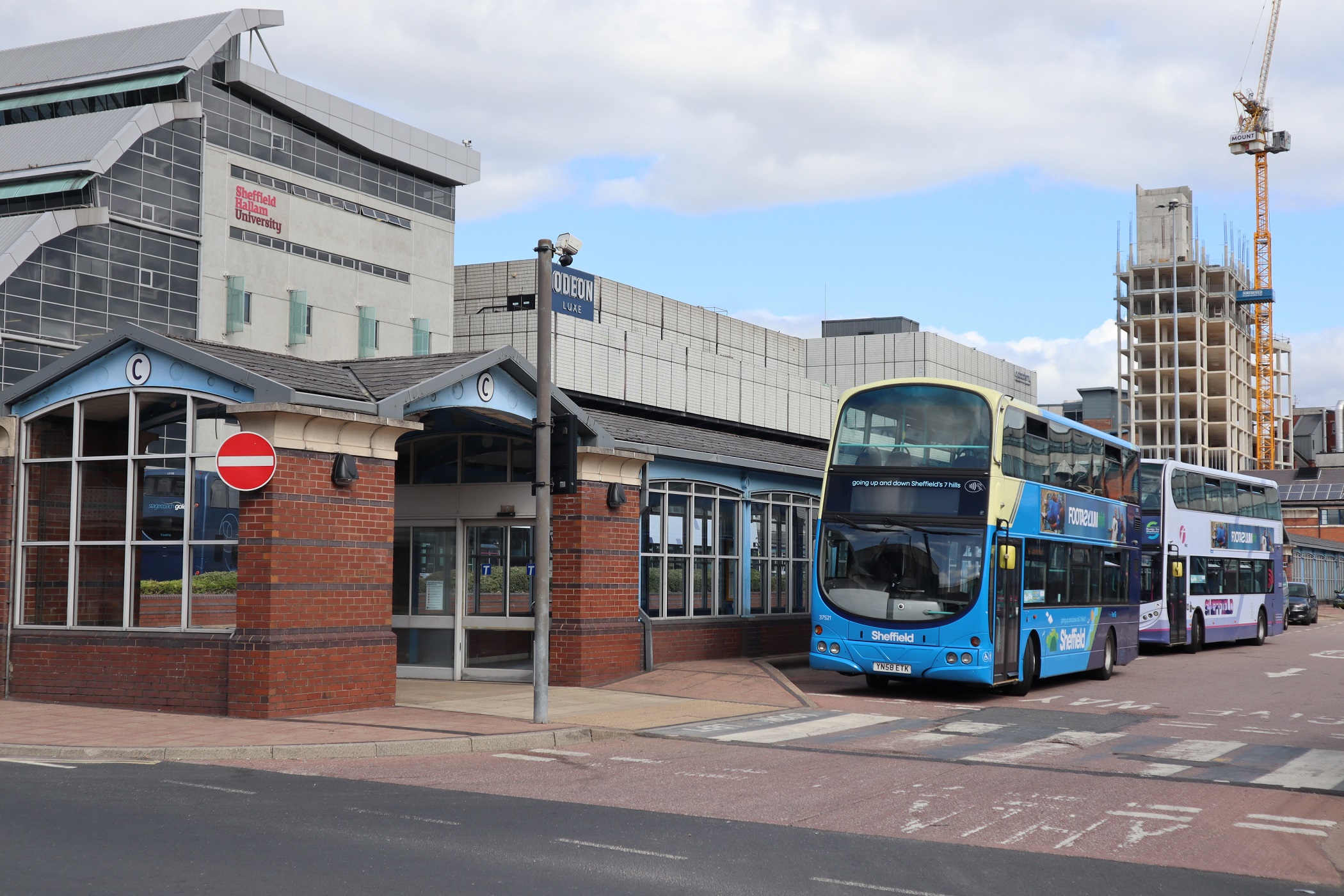The Bus Open Data Service (BODS) was launched in 2020 on the sector providing registered local services in England; arguably, not ideal timing. The industry was reeling from the impact of pandemic restrictions, and it was unable to focus on implementing new data regulations in the way that would normally be straightforward for one of the most regulated sectors in the UK.
Except in London, and now Greater Manchester, operators have been responsible since deregulation in 1986 for setting schedules and attracting passengers. Methods used include attractive timetables; buses that are increasingly focused on the passenger experience; and traditional marketing.
Part of this work is increasing levels of real-time data available at stops and on dedicated apps. Notwithstanding some massive energy being put into that, there has still been a steady fall in service availability and patronage over the years.
Bus Open Data Service stands to benefit passengers
This decline does not sit well with society’s desire to encourage use of more carbon neutral modes of transport. Bus is a larger mover of passengers than rail. It does, however, attract only a tiny share of taxpayer support when compared to rail. Coach and bus services are still the low hanging fruit that has yet to be harvested on the journey to net-zero.
The aim, therefore, is to get more travellers onto buses. BODS is one way to improve the mode’s appeal, because historically, there is perceived to be an inertia in passengers changing to bus from car or taxi, because it is difficult to interpret the timetable and locations of bus stops by someone who is unfamiliar with a town or city.
Furthermore, even if the potential passenger knows where to get the right bus and where to get off, there is a perception that buses are ‘unreliable’, and that waiting time can be indefinite – possibly in the rain.

BODS requires operators in scope to upload to a database information on routes, fares, and live locations of vehicles. App and web developers can access that to provide real-time information and accurate route, stops and fares information in a modern, generic app like Google Maps. The perception is that this will mitigate the uncertainty of bus travel to the non-regular user and make it more attractive.
So, what is not to like? The system for uploading the data is primarily provided by the IT in ticket machines. Data is very relevant to people’s transport choices, and if it works to encourage modal shift to bus, it is a great win for all concerned.
Not all is positive for those in scope of BODS
There are some downsides. Most obviously, participation is not optional. As ever with transport regulations, where an operator is non-compliant, penalties can be draconian.
They include financial penalties, based on the O-Licence vehicle authorisation and like those imposed for failing to run a registered service to timetable. Ultimately, it is also potentially a repute issue if the non-compliance is perceived to be reckless or deliberate, and that can mean the loss of the O-Licence. BODS regulations are thus not to be treated lightly, and the whole solution does not lie with ticket machine providers.
Another challenge is that for an unexplained reason, all local registered service in scope of BODS must supply their data to the System. Even closed-door services that require registration because they do not fit within the limited exemptions, but which in practice are never available to the public.
Typical examples are home-to-school and home-to-work transport. That makes no sense. Either these services should be removed from the registration requirement altogether, or they should at least be exempt from BODS.

Closed-door absurdity for Bus Open Data Service
By their nature, such closed-door services are adjusted to meet the needs of the organisation for which they operate. If a place of work is closing early, or a school must close because of an imminent weather event or a sports day finish, or is closed because of industrial action, the operator will, and does, amend its provision to meet the requirements of passengers.
In schools, this type of flexibility need is not a rare event, but it will result in the real-time data on BODS being well outside the registered particulars. No passenger would be adversely affected since the change is to provide the service to their requirements.
“Should my school service be registered?” and “do I have to comply with BODS data submission when I do not use ticket machines on my works service?” are common questions answered on a regular basis by the Backhouse Jones team – and no doubt by the Department for Transport (DfT) and DVSA enquiry lines.
In short, closed-door services are a red herring and really should be removed from the registration of local services requirements altogether. A simple change to the exemption in the relevant legislation would enable that.
Remember the importance of ABODS to your operation
Another area of challenge is the development of the Analyse Bus Open Data Service (ABODS) system. The motivation behind BODS is very positive. ABODS, however, could be seen as more sinister from a service operator’s perspective. It is an analysis tool that is being developed on behalf of DfT, and is available to operators, too.
ABODS allows operators to examine how their services observe the Traffic Commissioners’ six-minute window of tolerance. The enforcement agency can see the stats for a given operator, and if of a mind to do so, it can open an investigation.

More mundanely, ABODS is a victim of ‘garbage in, garbage out’ if the data is incomplete or the system does not identify well how a service ceases and restarts – such as those that do not run through school holidays. Then the non-compliance stats can be horrific. This can set running an investigation that is completely unnecessary.
‘ABODS is a useful tool for punctuality analysis’
However, there are positives to ABODS. The information is available to the operator of services being analysed. All operators should access their own data, even those with sophisticated internal tools, because it is part of how the Office of the Traffic Commissioner (OTC) and DVSA views them.
ABODS may well present a different picture to the operator’s own tools, and that lack of consistency will need to be worked out and resolved. Often, differences relate to the way the data and timetables are submitted to BODS, and that may need to be tweaked.
SME operators, including primarily coach businesses that run a small number of services, may not have their own in-house systems and may have been reliant on more traditional monitoring. ABODS is a massive step forward for them, giving a developing set of analysis tools to those operators without the resources to obtain their own system commercially.

An additional benefit is that BODS data covers the whole of England. When looking at that (and ignoring frequent services running every 10 minutes or better), it becomes clear how rare it is for any operator to consistently achieve anywhere near the 95% compliance with the window of tolerance that has been the arbitrary target for over 20 years.
Operators have long known that is unachievable. Indeed, DfT bus punctuality statistics over most of the past 20 years confirm it. However, ABODS allows a much more focused regional analysis, and it is bang up to date.
Operators can thus use it, perhaps with the assistance of DVSA Bus Operator Account Managers or OTC, to look at comparable operations in the same or similar geography to demonstrate that they have ‘reasonable excuse’, and so avoid financial and other penalties for unpunctual services. Indeed, over time, this can be used to set more meaningful targets for compliance expectations, and so avoid unnecessary and expensive investigations.
Is BODS a fundamental positive for bus?
Ultimately, big data is a growing part of life for commercial decision making. BODS and ABODS are here to stay. The fundamental purpose of both is to improve accessibility to bus services for a wider cohort of passengers and improve the user experience through ever increasing punctuality. Both objectives are to the commercial benefit of the regular service operator.
The underlying point here is that while there are some areas to beware of, overall it is worth local service providers embracing the inevitable reality of BODS and ABODS.
Contact the Backhouse Jones regulatory team for more information on 01254 828300.

























